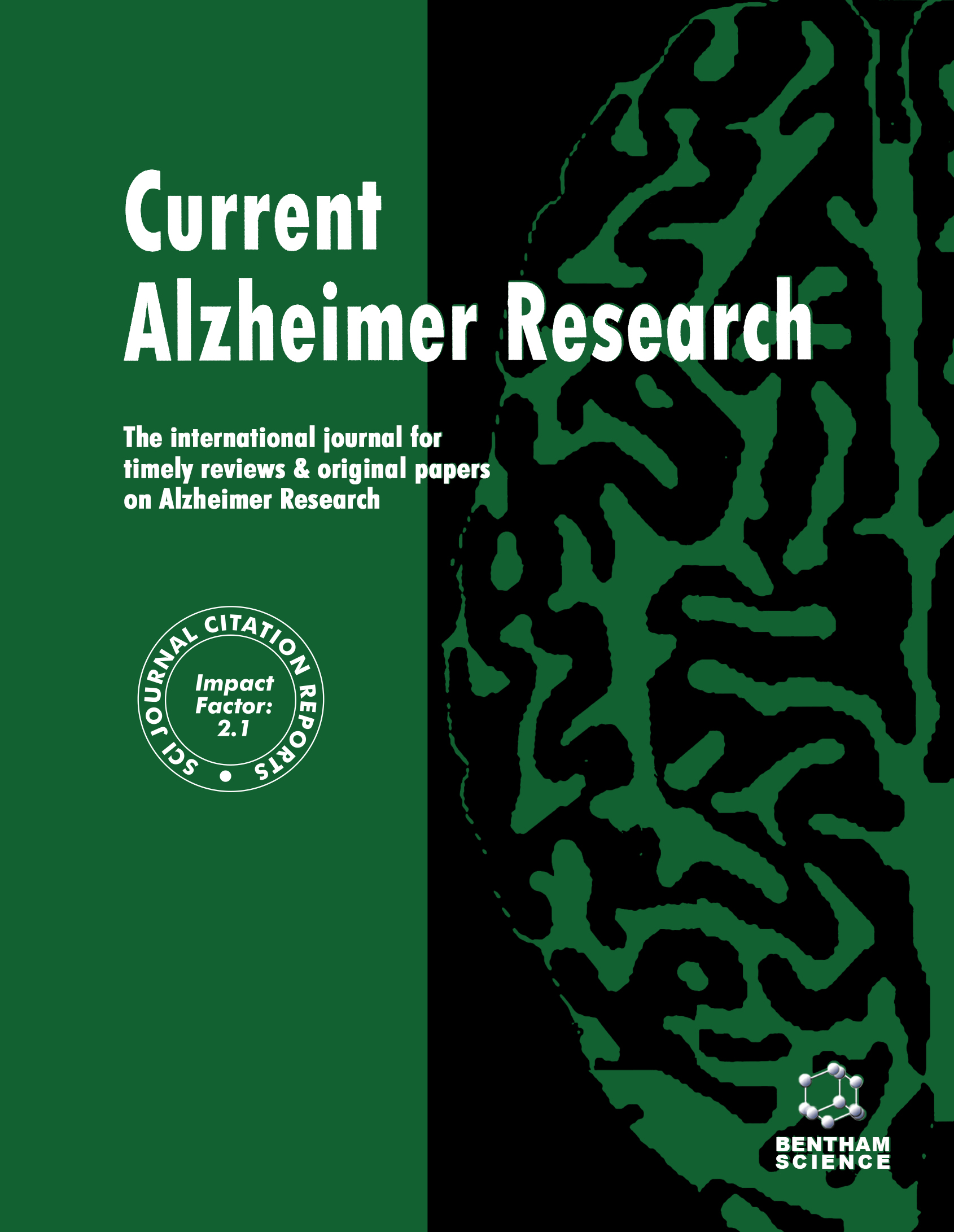-
s Cerebrospinal Fluid Inflammatory Markers in Alzheimer’s Disease: Influence of Comorbidities
- Source: Current Alzheimer Research, Volume 18, Issue 2, Feb 2021, p. 157 - 170
-
- 01 Feb 2021
Abstract
Background: Alzheimer's disease (AD) develops into dementia after several years, and subjective cognitive impairment (SCI) and mild cognitive impairment (MCI) are used as intermediary diagnoses of increasing severity. Inflammation is an important part of AD pathology and provides potential novel biomarkers and treatment targets. Objective: To identify novel potential biomarkers of AD in cerebrospinal fluid (CSF) and create a molecular pattern of inflammatory factors providing differentiation between AD and SCI. Methods: We analyzed 43 inflammatory-related mediators in CSF samples from a cohort of SCI and AD cases vetted for confounding factors (Training cohort). Using multivariate analysis (MVA), a model for discrimination between SCI and AD was produced, which we then applied to a larger nonvetted cohort (named Test cohort). The data were analyzed for factors showing differences between diagnostic groups and factors that differed between the vetted and non-vetted cohorts. The relationship of the factors to the agreement between model and clinical diagnosis was investigated. Results: A good MVA model able to discriminate AD from SCI without including tangle and plaque biomarkers was produced from the Training cohort. The model showed 50% agreement with clinical diagnosis in the Test cohort. Comparison of the cohorts indicated different patterns of factors distinguishing SCI from AD. As an example, soluble interleukin (IL)-6Rα showed lower levels in AD cases in the Training cohort, whereas placental growth factor (PlGF) and serum amyloid A (SAA) levels were higher in AD cases of the Test cohort. The levels of p-tau were also higher in the Training cohort. Conclusion: This study provides new knowledge regarding the involvement of inflammation in AD by indicating different patterns of factors in CSF depending on whether potential confounding comorbidities are present or not, and presents sIL-6Rα as a potential new biomarker for improved diagnosis of AD.


